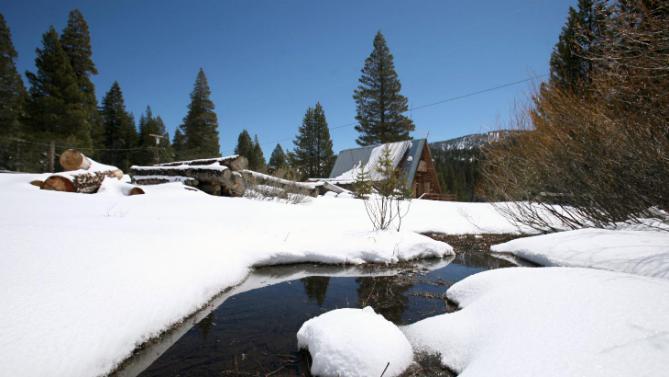
Coastal waters off California are getting more acidic. Conifer forests on the lower slopes of the Sierra Nevada mountains have moved to higher elevations over the past half-century.
Climate change is affecting natural resources in California, the most populous state in the U.S., a report released Thursday found.
“There’s certainly reason for concern,” said Dan Cayan, a climate scientist at the Scripps Institution of Oceanography who contributed to the report.
The findings are an update to a 2009 report that documented how a warming California is impacting the environment, wildlife and people.
Among the known impacts: Butterflies in the massive agricultural region known as the Central Valley are emerging from hiding earlier in the spring; glaciers in the Sierra Nevada have shrunk; and spring runoff from snowmelt has declined, affecting Central Valley farmers and hydroelectric plants.
The latest report was compiled from existing climate studies and released by an arm of the California Environmental Protection Agency.
Officials hope it will spur the state and local governments to plan ahead and adapt to a hotter future.
Annual average temperatures across the state have risen by about 1.5 degrees Fahrenheit (0.8 Celsius) since 1895, with the greatest warming seen in portions of the Central Valley and Southern California.
Levels of carbon dioxide, methane and other heat-trapping gases in the state increased between 1990 and 2011. In recent years, there has been a slight drop — the result of industries and vehicles becoming more energy efficient, the report said.
Some of the carbon dioxide in the atmosphere is being absorbed by the ocean, altering its chemistry. Scientists have documented changes to waters at Monterey Bay, which have turned more acidic in recent years, raising concerns about impact to marine life.
Certain plant and animals species — such as conifers in the Sierra Nevada and small mammals in Yosemite National Park — have responded to a changing climate by moving to higher ground.
Expect more heat waves, wildfires and higher sea levels as the state warms, the report said.
Carnegie Institution ecologist Chris Field, an acknowledged leader in the field of climate impacts, said the observations in the report “are more or less the gold standard of where we are now today” and provide a peek of the future.
Source :Associated Press












